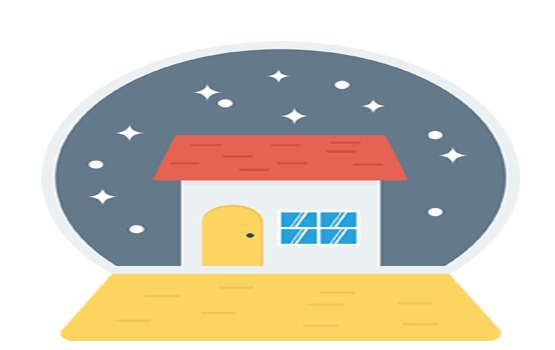Buying A House Of Your Own
We all need a place to live in. Some people rent a home; others buy one. If you've decided to stop paying rent and buy your first home, you're not alone. With interest rates at their lowest in decades, many people have discovered that they can afford to buy a house. In most cases, mortgage payments can be comparable or even significantly lower to the rent they are currently paying.
Making the decision to become a homeowner is good decision since buying a home is a great investment in your future. Choosing a home to buy starts with your needs and desires and should process logically until you find something you can afford. We think this web site will help you bring into balance some of the many factors to consider when deciding how best to meet your needs through home ownership.
For many people, it's no problem to keep up the bi-weekly or monthly mortgage payments and other costs associated with home ownership. But what usually holds first time buyers back is the initial down payment required to obtain a mortgage and other costs associated with purchasing a home, such as legal fees, disbursements and land transfer taxes.
What are Your Housing Needs and How Much You Can Afford?
There are three factors to consider before setting off to find a new home:
- Stage of life.
- What you can afford.
- Whether you should buy or rent.
Generally speaking there are three stages of development for a family or for a group of people living together.
- The first stage: In the first stage are people under 35 years of age. They have rapidly changing needs. The size of families usually increases requiring larger or different accommodations. Income earners often switch jobs and explore different employment options and sometimes this means a move to another city. Single people, too, tend to move around at this stage of life. Most home owners buy their first house at this stage.
- The second stage: In the second stage are people between 35 and 55 years of age. In this stage, life becomes more stable. Income earners usually secure jobs and the family size remains the same. Families and individuals at this stage tend to stay put.
- The third stage: In the third stage are people over 55 years of age. They tend to be even more stable. Family income earners rarely change jobs and their children set out on their own. Families in third stage usually don't need as much space as before, yet are reluctant to move because they are comfortable where they are. If they do move, it will likely be for infirmities, which make home maintenance too hard, or to accommodate a retirement lifestyle.
When hunting for a new home take a good look at your stage, your existing home and your needs. Knowing up-front what you need and what you want will help you save time later.
The second thing you need to determine is how much house can you realistically afford? It's a good idea to learn how to calculate on your own, but you can ask for some professional help in this area. A good realtor and mortgage specialist or mortgage broker are skilled professionals who can assist you.
Real estate agent knows how to assist you in assessing your housing needs and wants and can then match them with homes in your price range. As well, he or she will help you understand the process you will go through as a home buyer to complete a real estate transaction. Professional agents usually don't charge to buy your property, usually it doesn't cost you any more to have good sales person working for you.
For most homebuyers saving money for downpayment is a big issue. How to save money for downpayment will give you some ideas and a closer look at how to get that downpayment you need.
Sponsored content:
BUYER INFO
Buying a home is beginning of an exciting adventure and for most buyers it is the biggest financial investment of their lives. Yet a great number of people follow emotional impulses to the exclusion of sound thinking when they make an offer on a property they want to buy. Read more...
MORTGAGE INFO
Arranging to pay for that property you plan to buy is one of the most important financial decisions you will ever make. Regardless of how certain you are that you will get mortgage, it is always good idea to get pre-approved from the mortgage lender of your choice. Read more...
Real Estate & Related Info
Location
Location is an investment too and can also affect property values and property taxes. More...
Downpayment
Learn how to take advantage of government programs available to first-time home buyers. More...
Inspection
Knowing what to expect will help you make an informed decision about the value and the future upkeep. More...
Closing Cost
Don't forget closing costs; they vary greatly by location and they are also relative to your house price. More...
Moving Tips
Pack a box of items that will be needed first at the new house. Clearly mark this box "Load Last." More...
Glossary
Although not complete, the glossary of real estate terms will help you with some of the more common terms. More...
